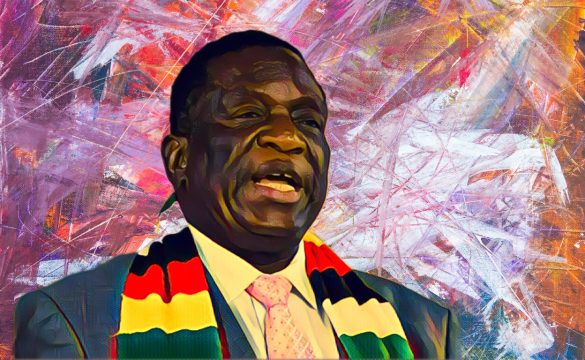Emmerson Mnangagwa, the president of Zimbabwe, declared he will not run for a third term in response to severe internal divisions within the ruling Zanu PF party. Given a situation of heightened factional disagreements and national crisis, this declaration represented a turning point in Zimbabwe’s political history.
Mnangagwa’s announcement came during his speech at the commissioning of the Mutare Teachers’ College fruit juice and water processing plant, where he clearly stated his current term would be his last. This statement counteracts the growing speculations and chants from his supporters hinting at an extension of his presidency until 2030.
“Our Constitution says after every five years, we go to congress. At the congress, we choose our president. Our president should have two five-year terms,” Mnangagwa explained, affirming his adherence to both party and national constitutional mandates. “I am in my last five-year term, which will end soon. I will be going to rest, and we will go to congress to choose another leader who will follow in my footsteps. My resting days are near,” he added.
The implications of his tenure extension had been a topic of heated debate, especially after recent actions that seemed to pave the way for prolonged power. Notably, Mnangagwa’s lack of immediate dismissal of the “ED2030” slogan chants by ministers and the strategic positioning of Zanu PF loyalists in Parliament fueled rumors of possible constitutional manipulations to delay the 2028 elections.
More controversy surrounds the most recent by-elections, which many saw as a ploy to increase Zanu PF’s parliamentary majority and make it easier for the party to introduce any necessary legislation to prolong Mnangagwa’s rule. These elections came after Sengezo Tshabangu, the secretary-general of the Citizens Coalition for Change, recalled several opposition MPs, a move that some claim gave Zanu PF a major edge.
Political observers have expressed a combination of cautious optimism and skepticism in response to Mnangagwa’s unexpected declaration. Pius Pigou, of the Institute for Security Studies, cautioned against the difficulties that come with political vows but underlined the need of taking Mnangagwa’s statements seriously. Pigou declared, “The President has now made it clear these are the rules, both in terms of the party’s and the nation’s Constitutions.” He did, however, draw attention to the possibility of political scheming that might still affect the party’s future leadership dynamics.
Political expert Ruben Mbofana supported this idea, pointing out that Mnangagwa may have been compelled to make this statement due to possible internal divisions within Zanu PF. Mbofana observed, “This declaration could potentially point to some significant internal conflicts within Zanu PF,” implying that the decision might stabilize both political and economic conditions in Zimbabwe.
Moreover, Mnangagwa touched upon the national currency issues, advocating for a shift from reliance on the US dollar to promoting the recently introduced Zimbabwe Gold (ZiG) currency. He used this platform to assert economic independence from the West, criticizing the reliance on the US dollar amidst diplomatic tensions with the United States. “Biden does not like us, but you love his money, is that good? It is not,” Mnangagwa rhetorically questioned, signaling a strong push towards adopting the ZiG as the primary currency within a remarkably short timeframe.
His statements regarding the ZiG currency are part of a larger plan to strengthen economic sovereignty and lessen foreign vulnerabilities. We are pushing the Zimbabwe Gold, which is our own ZiG. This is the money we are pushing so that in two years, two years is not that far away, [we will be using it as the only currency],” he said, imagining a time when local businesses would only do business with ZiG.


